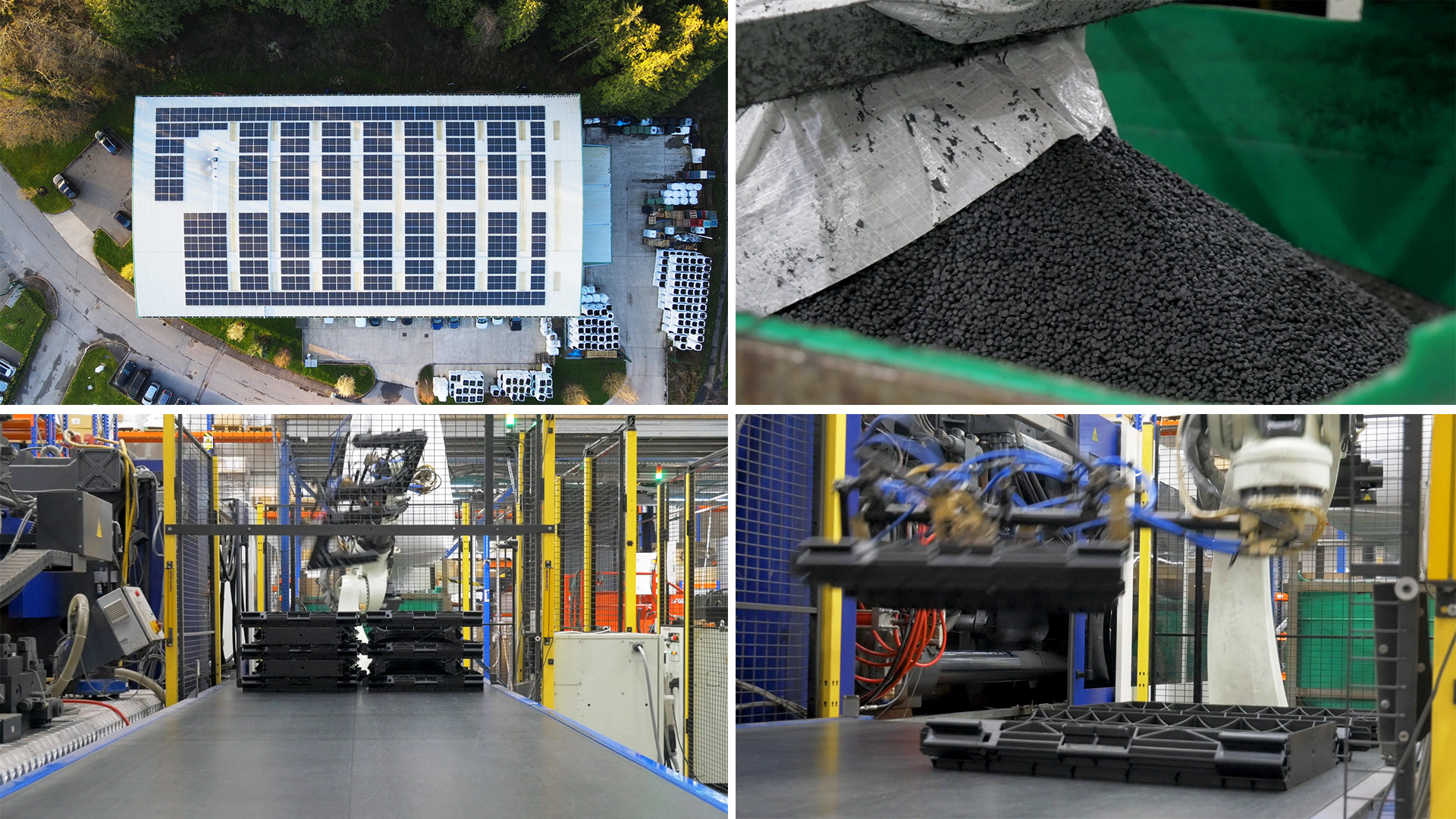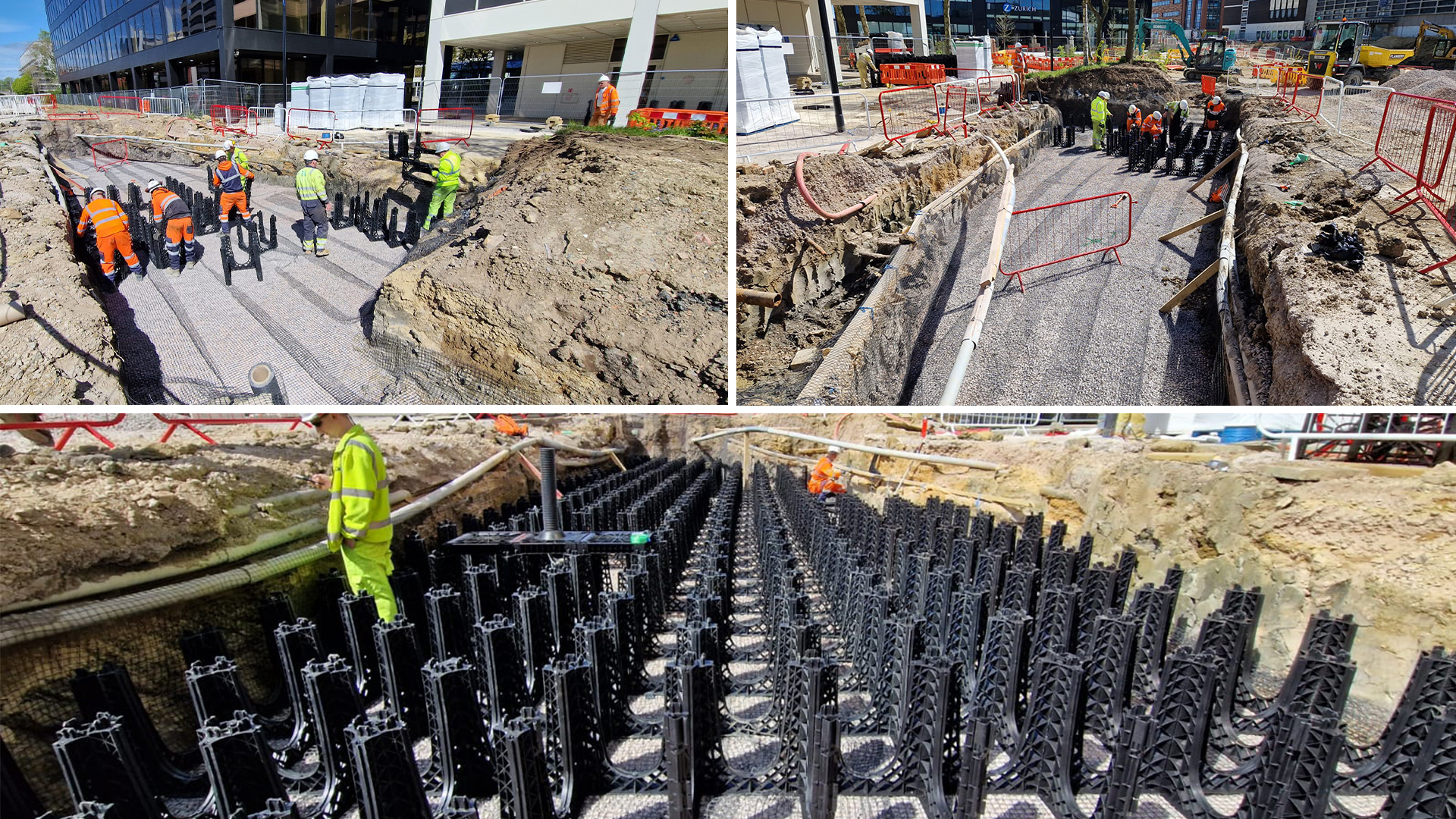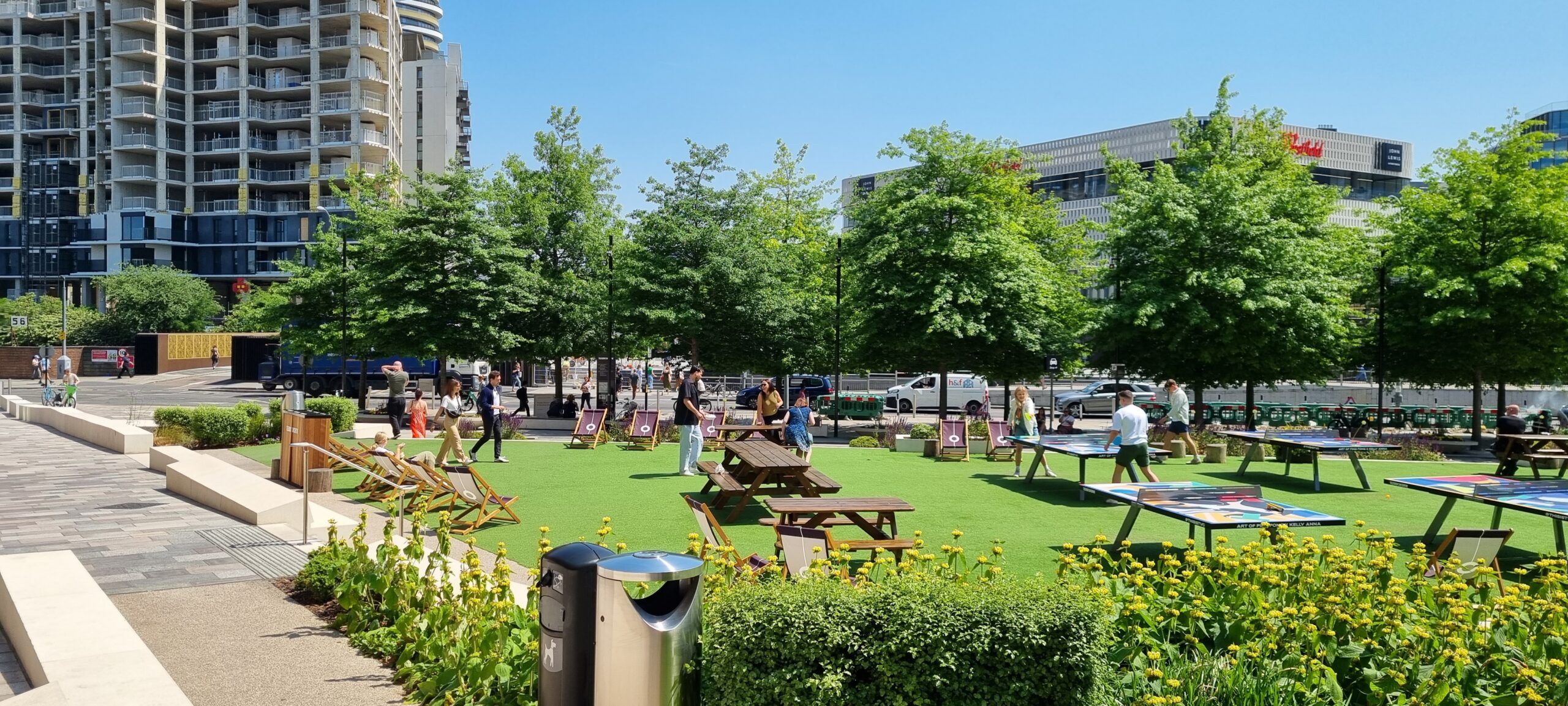In the ongoing conversation surrounding sustainability, plastic often finds itself cast as the villain. Yet, what if we challenged this perception? What if we explored the untapped potential of recycled plastic as a valuable resource in shaping the cities of tomorrow?
Join us as we delve into the case for recycled materials in sustainable urban development and discover how GreenBlue Urban is pioneering this transformative approach.
This blog post seeks to challenge common misconceptions about plastic while highlighting the benefits of recycled materials in sustainable urban development, with a specific focus on GreenBlue Urban’s contributions to the circular economy through local manufacturing and the Made in Britain accreditation.

- Plastics are not perfect, but they are the best alternative we have
- Plastics make up less than 0.5% of the materials we use, and the waste we create
- Life Cycle Analysis (LCA) is the only accepted way to determine what is green
Points are taken from the recently published The Plastics Paradox by Chris DeArmitt
Contrary to popular belief, recycled plastic possesses remarkable durability and longevity, making it an ideal candidate for urban infrastructure projects. From products for tree pits to rain gardens, recycled plastic products withstand the test of time, reducing the need for frequent replacements and minimising resource consumption.
The reuse and recycling of plastics, particularly SUPs, (single use plastics), remains very low compared with other materials such as glass, paper, and metal (Ellen MacArthur Foundation, 2017; Geyer et al., 2017). Most end up in landfills, contributing to adverse environmental and health effects (e.g., decrease in land resources and release of GHGs) (Heidari et al., 2019).
GreenBlue Urban: Leading the Charge in Sustainable Solutions
In the quest for sustainability, the carbon footprint of materials cannot be overlooked. Recycled plastic boasts a significantly lower carbon footprint compared to virgin plastics and other traditional materials. By diverting plastic waste from landfills and incineration, recycled plastic contributes to greenhouse gas emissions reduction and fosters a more environmentally conscious approach to urban development.

GreenBlue Urban, a pioneer in urban sustainability, has recently undergone a Life Cycle Assessment (LCA) for RootSpace. Following BRE certification* RootSpace will achieve an Environmental Product Declaration (EPD) The LCA for RootSpace* is a comprehensive study that delves into the fundamental aspects of the manufacturing process. It encompasses the product composition, energy consumption, water consumption, and the use of ancillary materials such as lubricating oils and hydraulic oils. The approach is based on primary data, ensuring accuracy in assessing the environmental impact.
Carbon Emissions and Recycled Polypropylene:
The report reveals compelling data on carbon emissions for the RS 400 and 600 single units. The Functional Unit (FU) used is 1m2 of products installed underground in tree pits over a study period of 50 years – aligning with the BBA accreditation (British Board of Agrément: Construction Product Certification).
Notably, the declared unit was compared to those made with 100% virgin polypropylene.
GreenBlue Urban proudly holds the Made in Britain accreditation, with ArborSystem products locally manufactured, using local materials. underscoring our commitment to UK manufacturing and the circular economy. By producing recycled plastic products domestically, we minimise transportation emissions, support local economies, and foster a sense of community pride in British craftsmanship.

With a dedication to the environment, local manufacturing extends beyond mere geography; it embodies the philosophy of the circular economy. Using recycled plastic in UK manufacturing, not only creates employment opportunities and stimulates economic growth but also reduces reliance on finite resources and mitigates environmental degradation on a global scale.
In conclusion, the narrative surrounding plastic must evolve beyond mere condemnation. Instead, let us recognise the inherent value of recycled plastic as a catalyst for sustainable urban development. Through innovation, collaboration, and a steadfast commitment to local manufacturing, GreenBlue Urban is paving the way towards a future where recycled materials reign supreme in shaping vibrant, resilient cities.
Join us in embracing the transformative power of recycled materials and together, let’s build a greener, more sustainable world for generations to come.


